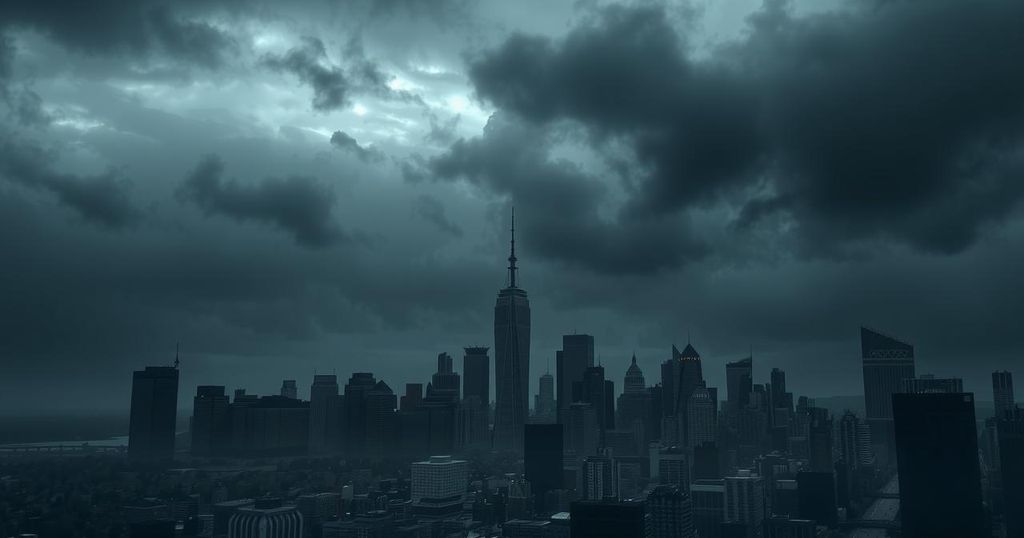Global news
ALI VAEZ, AMERICA, ASIA, BIDEN, DONALD TRUMP, ES, ESMAIL BAGHAEI, ICG, INTERNATIONAL CRISIS GROUP, INTERNATIONAL RELATIONS, IRAN, ISRAEL-HAMAS CONFLICT, MIDDLE EAST, NATIONAL SECURITY, NORTH AMERICA, SAN, SANCTIONS, THE WASHINGTON POST, TRUMP, UNITED STATES, US, USAID, WASHINGTON, WASHINGTON POST
Jamal Walker
0 Comments
US Aid Freeze Poses Threat to Human Rights Advocacy in Iran
The US aid freeze potentially disrupts the flow of information about human rights abuses in Iran as activists warn of increased governmental repression. Following President Trump’s executive order halting foreign aid, human rights organizations face operational limitations, hindering their ability to document violations. This comes amid Iran’s severe economic crisis, raising concerns of intensifying government crackdowns on dissent.
Iranian human rights groups and activists express concern regarding the impact of the recent US foreign aid cuts on the dissemination of information pertaining to human rights violations in Iran. This apprehension arises amidst an intensifying crackdown by the Iranian government on dissent, which has escalated sharply in recent times.
On January 20, President Donald Trump signed an executive order halting all American foreign aid delivered through the State Department and USAID for three months. The action was allegedly motivated by concerns regarding the alignment of these foreign assistance agencies with US interests and specific American values.
However, this aid freeze has profound implications for human rights monitoring in Iran, where the regime has intensified its repression of journalists, activists, and civil society organizations. Consequently, Iranian human rights entities operating internationally have been obliged to reduce their activities, resulting in layoffs and the suspension of vital initiatives focusing on human rights advocacy.
This decision coincides with a worsening economic crisis in Iran, where the currency’s value has witnessed a dramatic decline from 32,000 rials to the US dollar in 2015 to a staggering 584,000 today. Additionally, the Iranian authorities have increased arrests, heightening fears among activists of imminent further repression.
Ali Vaez, the Iran project director for the International Crisis Group (ICG), stated, “Violators of human rights, you know, they’re like mushrooms. They grow in the dark. So if there is no light shed on what they’re doing, then they feel that they have a more open hand.”
Organizations funded by the State Department’s Near East Regional Democracy Fund (NERD), created in response to the protests in 2009, systematically monitor Iran’s human rights situation. The Biden administration seeks $65 million for the NERD in 2024, which includes $16.75 million aimed at promoting internet freedom, as reported by the Congressional Research Service.
Iranian officials have seized upon the funding freeze, with spokesman Esmail Baghaei asserting that it reflects “America’s interventionist policy, particularly during Biden’s administration, which tried to pressure Iran and meddle in its domestic affairs through financial aid.”
Sanam Vakil, director of the Middle East and North Africa program at Chatham House, opined that American funding has exacerbated Iranian paranoia, stating, “The problem with this kind of funding in countries like Iran is that it’s interpreted at the highest level as a national security issue because the United States is effectively trying to transform the Islamic republic.”
In light of various political setbacks, Iranian security forces have targeted outspoken critics more aggressively. A notable case involves actress Soheila Golestani, who faces 74 lashes and a year’s imprisonment for her performance in the film “The Seed of the Sacred Fig,” which addresses social issues and the 2022 protests triggered by economic grievances following the death of Mahsa Amini.
The recent freeze on US foreign aid poses significant risks for human rights advocacy in Iran, as activists and organizations struggle to operate amid an intensified governmental crackdown on dissent. With the economic situation in Iran deteriorating and rights violations increasing, the impact of this aid cut amplifies concerns regarding the repression of free speech and civil liberties. As noted by experts, a lack of support not only undermines the efforts to promote human rights but also creates a conducive environment for violations to occur unchecked. This situation warrants ongoing scrutiny and proactive approaches from the international community to safeguard the free flow of information and support for human rights in Iran.
Original Source: www.newarab.com




Post Comment